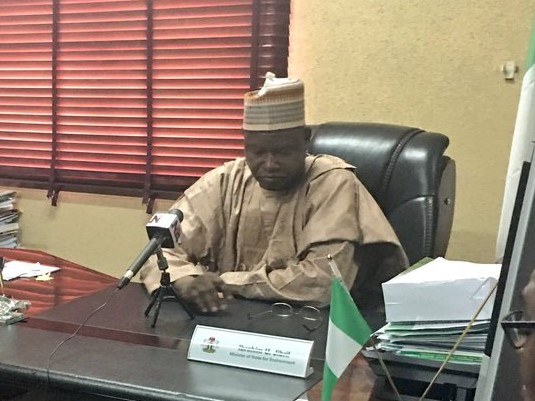The Nigerian government announced on Monday, May 22, 2017 that it is collaborating with the Republic of Cameroun, plans to establish three Transboundary Protected Areas that will serve as international tourism centres.

According to a statement made available to EnviroNews, these are the Cross River-Korub and Takamanda, the Gashaka-Gumti-Faro and Tchabal Mbabo, and the Chad Basin-Waze transboundary Parks.
These Parks, when established, will contribute significantly to reducing threats to, and maintain or increase key wildlife populations and biodiversity values through tourism revenue, the statement revealed.
Working collaboratively with state governments and international partners, efforts are also being made by the authorities to preserve the Cross River National Park, Gashaka Gumti National Park, and the channelisation and reclamation of the Nguru Wetlands in Yobe State.
Government, it was gathered, also supports the development of ex-situ conservation areas like the zoological and botanical gardens throughout the Federation. According to officials, this does not only enhance biodiversity conservation, but also promote sustainable tourism and provides educational and Job opportunity for youth.
Biodiversity is fundamental to the livelihoods of our communities: they rely on it for environmental sustenance, economic and social activities; the services that we, the elites also rely on have a link with biodiversity; the activities of our economic sectors, be it productive, extractive or social, have positive or negative impacts on our biodiversity,” says Ibrahim Jibril, Minister of State for Environment.
The theme of this year’s International Day for Biological Diversity is: “Biodiversity and Sustainable Tourism”, and the ocassion coincides with the observance of 2017 as the International Year of Sustainable Tourism for development as proclaimed by the United Nations General Assembly in its resolution 70/193, and for which the United Nations World Tourism Organisation is providing leadership.
It emphasises the importance of biodiversity in sustaining development, particularly in the area of sustainable tourism.
“It is therefore an opportunity for us to reflect on the importance of biodiversity for our social well-being particularly as it relates to eco-tourism,” notes Jibril.
According to him, Nigeria recognises the challenge posed by deforestation, even as it also recognises the importance of maintaining the diversity of genetic resources, species, and ecosystems for improving the livelihoods of people and their social welfare.
“To this end, the continuous development of tourism centres and in-situ conservation areas through ecological representatives such as our National Parks, Game Reserves, Strict Nature Reserves and sanctuaries are given top priority by this administration,” he contends.
He adds: “Government is committed to the achievement of the Bonn Challenge, the New York Declaration and other global initiatives for forest and landscape restoration. To this end, Government will continue to address the degraded ecosystems nation-wide in the 2017-2018 development years through the Ministry’s collaborative initiative with the National Youth Service Corps (NYSC). This will not only restore our degraded ecosystems but also enhance our tourism and cultural values, and build ecosystem resilience against the impact of climate change.
“We remain committed to implementing the National Biodiversity Strategy and Action Plan (NBSAP), which has been reviewed in line with the Global Strategy for Biodiversity Conservation 2011-2020 and its Aichi Biodiversity Target.
“Our NBSAP is an embodiment of how synergetic actions within the environment sector and linkages with other economic sectors can be profitable in addressing the threats to our biodiversity and halting its loss. The ongoing clean up of the Niger Delta, reclamation of Lake Chad, remediation of lead poisoning, removal of Typha grass in Lake Nguru and restoration of livelihood around these communities is a demonstration of our commitments to restore and preserves our biological diversity and genetic resources.
“In the course of the NBSAP revision, the website, www.chm-cbd.com.ng, was established for the dissemination of information on biodiversity. This is an affirmation of this administration’s efforts to prioritise biodiversity conservation for the economic and social well-being of our people.
“In December 2016, the President assented to the bill sent by the National Assembly, The Endangered Species (Control of International Trade and Traffic) Amendment Act 2016.
“Individual actions and Investment decisions in corporate bodies should always take into account the impact on biodiversity. There is need now more than ever to halt biodiversity loss to preserve our future and that of our posterities. Let us all join hands to conserve and sustainably use biodiversity in order to halt its loss and consequently ensure our livelihoods and our own survival.”
